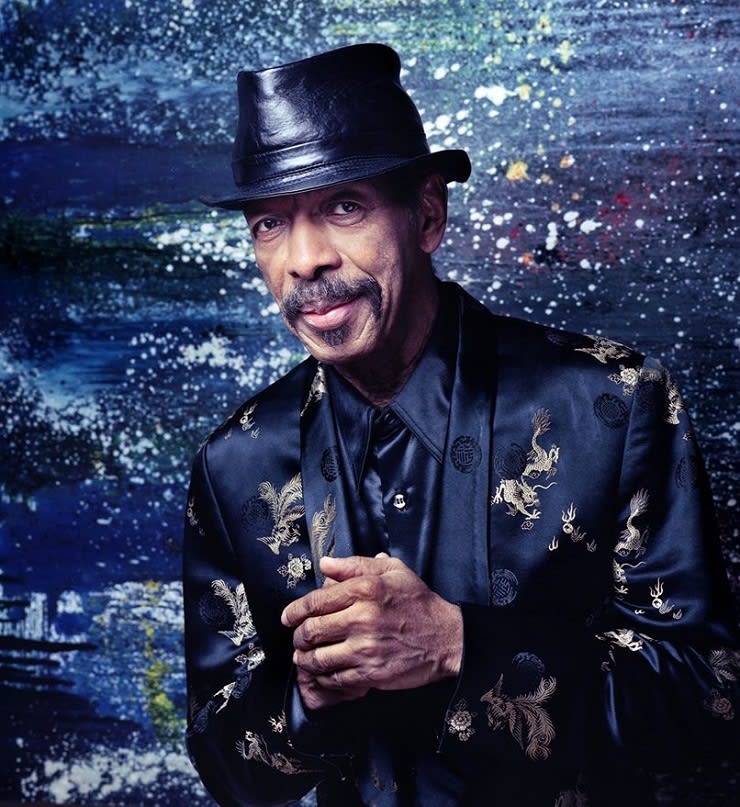Ornette Coleman, the iconic saxophonist that gave the world The Shape of Jazz to Come, died this morning (June 11) at his home in Manhattan, NY. He was 85 years old.
A representative for the family [via the New York Times] confirmed the jazz musician's passing, citing cardiac arrest as the cause of death.
Born in Forth Worth, TX, in 1930, Coleman began his career playing R&B and bebop before carving out a path as a major jazz innovator. Between the late 1950s and early '60s, he issued a string of avant garde-leaning albums including 1959's The Shape of Jazz to Come and 1961's Free Jazz: A Collective Improvisation that shifted away from traditional harmony and rhythm. Instead, he employed elements of dissonance into his arrangements, and experimented with meter.
While often cited as an instigator of the free jazz movement, the catch-all term had not been created by Coleman. "Now I didn't call the music I was doing 'free jazz,'" he told the Chicago Tribune in a 2003 interview. "Someone [at the Atlantic record label] named it that, put a Jackson Pollock painting on it and called it 'Free Jazz.'"
Tied into his aural experimenting, Coleman had developed a musical philosophy of "Harmolodics," which he had described as "the use of the physical and the mental of one's own logic made into an expression of sound to bring about the musical sensation of unison executed by a single person or with a group."
Coleman produced a vast catalogue that found him working with the likes of Charlie Haden and trumpeter Don Cherry, as well as pop and rock figures like the Grateful Dead's Jerry Garcia and Lou Reed.
Coleman's 2005 LP, Sound Grammar, earned him a Pulitzer Prize in 2007. That same year, he was honoured with a Grammy Lifetime Achievement Award. His most recent record was 2014's New Vocabulary, a collaboration with Jordan MacLean, Amir Ziv and Adam Holzman.
Coleman is survived by his son, jazz drummer Denardo Coleman.
A representative for the family [via the New York Times] confirmed the jazz musician's passing, citing cardiac arrest as the cause of death.
Born in Forth Worth, TX, in 1930, Coleman began his career playing R&B and bebop before carving out a path as a major jazz innovator. Between the late 1950s and early '60s, he issued a string of avant garde-leaning albums including 1959's The Shape of Jazz to Come and 1961's Free Jazz: A Collective Improvisation that shifted away from traditional harmony and rhythm. Instead, he employed elements of dissonance into his arrangements, and experimented with meter.
While often cited as an instigator of the free jazz movement, the catch-all term had not been created by Coleman. "Now I didn't call the music I was doing 'free jazz,'" he told the Chicago Tribune in a 2003 interview. "Someone [at the Atlantic record label] named it that, put a Jackson Pollock painting on it and called it 'Free Jazz.'"
Tied into his aural experimenting, Coleman had developed a musical philosophy of "Harmolodics," which he had described as "the use of the physical and the mental of one's own logic made into an expression of sound to bring about the musical sensation of unison executed by a single person or with a group."
Coleman produced a vast catalogue that found him working with the likes of Charlie Haden and trumpeter Don Cherry, as well as pop and rock figures like the Grateful Dead's Jerry Garcia and Lou Reed.
Coleman's 2005 LP, Sound Grammar, earned him a Pulitzer Prize in 2007. That same year, he was honoured with a Grammy Lifetime Achievement Award. His most recent record was 2014's New Vocabulary, a collaboration with Jordan MacLean, Amir Ziv and Adam Holzman.
Coleman is survived by his son, jazz drummer Denardo Coleman.




